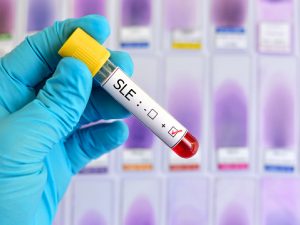 In lupus patients, anti-inflammatory immune cells mature into pro-inflammatory cell types. A pressing question in lupus is why cells that are supposed to keep inflammation at bay don’t do their job. Research has now shown that B cells that normally regulate inflammation are signaled to become pro-inflammatory instead. The study was conducted on human blood samples and genetic profiles. The findings also reveal how patients respond to treatment in relation to their levels of cellular signals.
In lupus patients, anti-inflammatory immune cells mature into pro-inflammatory cell types. A pressing question in lupus is why cells that are supposed to keep inflammation at bay don’t do their job. Research has now shown that B cells that normally regulate inflammation are signaled to become pro-inflammatory instead. The study was conducted on human blood samples and genetic profiles. The findings also reveal how patients respond to treatment in relation to their levels of cellular signals.
Miscommunication in lupus comes from three types of immune cells: B cells that produce antibodies, plasmacytoid dendritic cells producing a molecular signal (called IFN-?) that stimulates B cells, and regulatory B cells that suppress excessive immune responses, which are limited in lupus patients.
Advertisement
Senior author Claudia Mauri said, “Our study shows for the first time that the overproduction of IFN-? by hyperactivated plasmacytoid dendritic cells in lupus patients is the consequence of the lack of suppressive regulatory B cells. The uncontrolled production of IFN-? causes an increase of antibody-producing B cells and suppresses the division and appearance of regulatory B cells.”
The researchers also uncovered why rituximab – a drug to treat lupus – is only successful in some patients and not others. “After treatment, newly formed B cells come back into circulation. Our study suggests that response to rituximab is determined by the presence or absence of an elevated IFN-?-related gene activity. Thus, only in patients that have a normal IFN-? signature do the newly repopulated B cells successfully mature into regulatory B cells,” explained lead author Madhvi Menon.
Mauri concluded, “This would be an important step towards personalized medicine for the treatment of lupus.”
Lupus and its impact on the immune system
Lupus is an autoimmune disease, meaning the immune system wrongfully attacks itself. Typically, the immune system’s role is to identify threats that enter the body and attack them, but in an autoimmune disease the immune system attacks the protective cells, damaging them or causing them to malfunction.
The immune system is made up of T cells, B cells, antibodies, cytokines, neutrophils, and complement proteins, which all work together to protect the body from harm. Some cells identify threats, while others work to destroy them, but in lupus these signals can get mixed up. As a result, these cells cause more harm and inflammation in the body than they do to protect the body.
Over time, this “self-harm” can lead to permanent damage and can jeopardize the functions of internal organs and bodily functions.
Related Reading:
Fibromyalgia vs. Lupus, differences in symptoms, pain, causes, and treatment
Fibromyalgia and lupus are two conditions that can cause pain, but it’s important to recognize the many significant differences between the two. Systemic lupus erythematosus (SLE), or lupus, is an autoimmune systemic disorder, which affects the joints, skin, and practically any organ in the body. Fibromyalgia affects the muscles causing pain, tender points, and extreme fatigue, and can contribute to anxiety or depression. Continue reading…
Advertisement
In lupus, white blood cells unable to regulate inflammation and regulating cells cause damage
In lupus, white blood cells lose their ability to regulate inflammation and regulating cells then cause damage. The mitochondria – a cell’s powerhouse – were studied to determine how they may lead to lupus-like inflammation. Certain white blood cells in lupus and other inflammatory disorders have been found to increase the amounts of mitochondrial reactive oxygen species. Continue reading…
Sources:
http://www.eurekalert.org/pub_releases/2016-03/cp-flp030216.php
http://www.cell.com/immunity/abstract/S1074-7613(16)30050-4
http://www.hopkinslupus.org/lupus-info/lupus-affects-body/lupus-immune-system/
